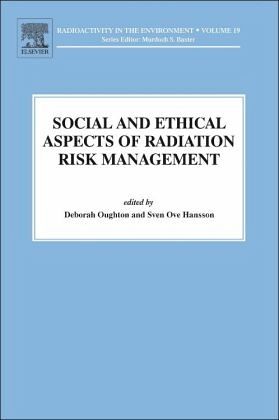
Social and Ethical Aspects of Radiation Risk Management

PAYBACK Punkte
77 °P sammeln!
Social and Ethical Aspects of Radiation Risk Management provides a comprehensive treatment of the major ethical and social issues resulting from the use of ionizing radiation. It covers topics such as nuclear fuel cycles, radioactive waste treatment, nuclear bomb testing, nuclear safety management, stakeholder engagement, cleanup after nuclear accidents, ecological risks from radiation, environmental justice, health and safety for radiation workers, radiation dose standards, the ethics of clinical radiology, and the principles of radiation protection and their ethical underpinnings. With autho...
Social and Ethical Aspects of Radiation Risk Management provides a comprehensive treatment of the major ethical and social issues resulting from the use of ionizing radiation. It covers topics such as nuclear fuel cycles, radioactive waste treatment, nuclear bomb testing, nuclear safety management, stakeholder engagement, cleanup after nuclear accidents, ecological risks from radiation, environmental justice, health and safety for radiation workers, radiation dose standards, the ethics of clinical radiology, and the principles of radiation protection and their ethical underpinnings. With authors ranging from philosophers to radiation protection officials and practitioners, the book spans from theoretical to practical implications of this important area of radiation risk assessment and management.













